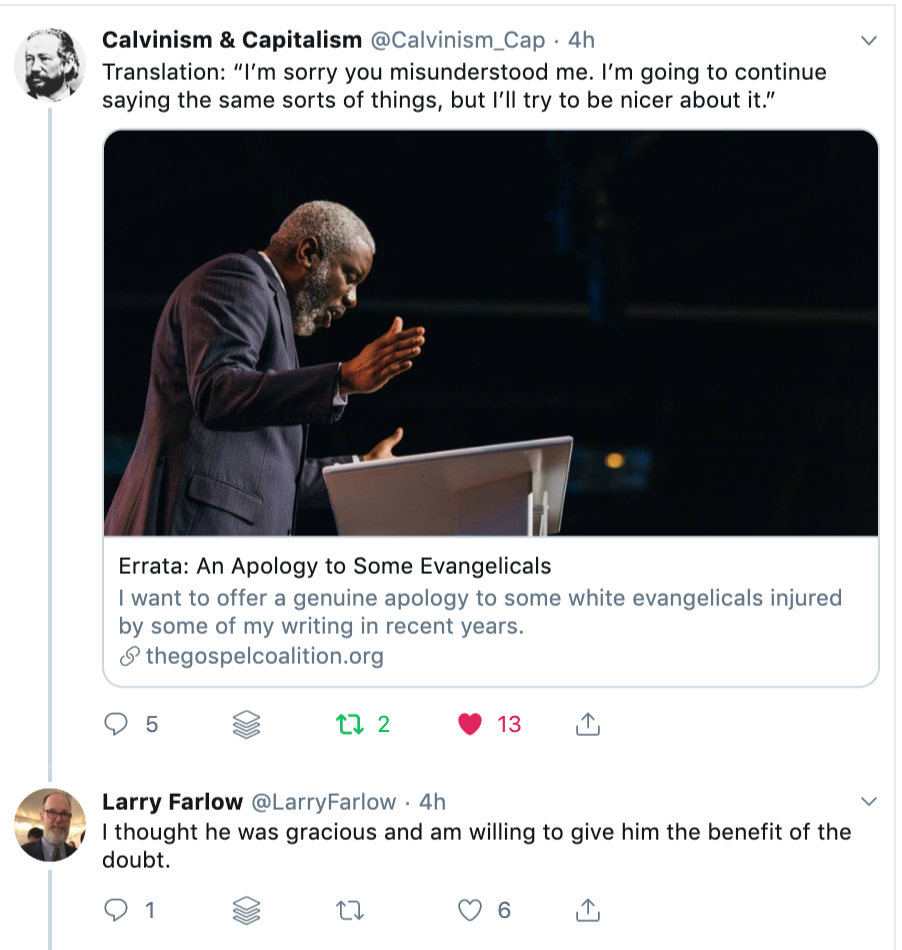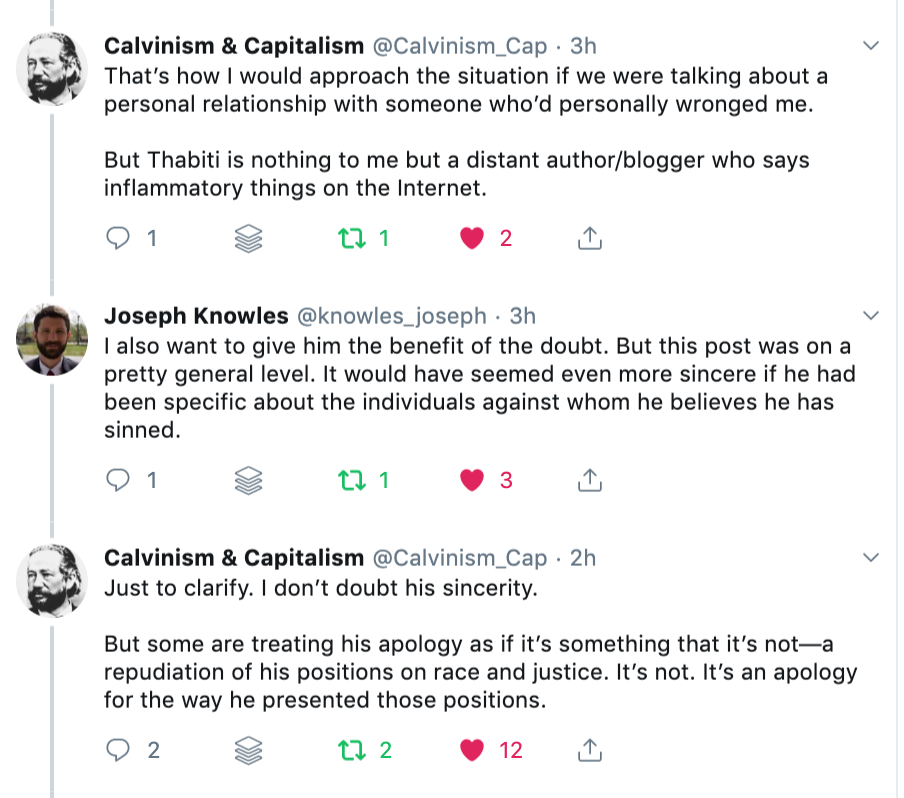
Today TGC’s Thabiti Anyabwile issued what he perhaps intended as an apology to white evangelicals.
The article is entitled: Errata: An Apology to Some Evangelicals. The URL suggests this is an altered title. The original title appears to have been Errata: An Apology to White Evangelicals.
I have heard apologies. This isn’t exactly it.
Thabiti’s “apology” condensed:
(And if you think I’m lying, go read his piece. The following report is accurate.)
- Sorry for my emotional state.
- Sorry for being an unclear writer.
- Sorry for not being careful enough to meet the impossible task of knowing all the facts before speaking.
- Sorry for responding with mumbling when I was mistreated.
- Sorry if I may have misrepresented someone.
- Sorry I delayed in saying all this because I knew scoffers would use it against me.
- MOREOVER: I understand that some might lack the capacity to forgive me (*cough. . . Matthew 6:15).
- I commit to being charitable.
- I have nothing to say about whether my positions have been wrong — nor about whom I have harmed — nor what specific mistakes I made.
Not a “wonderful example of humility”
Despite what some esteemed brothers in Christ seem to believe, Thabiti’s article is not a “wonderful example of humility.” We ought not praise Thabiti’s words as if they displayed grace or virtue. They don’t.
These appear to be the words of someone who has not changed any of his offensive positions, and thus, who has not understood that for which any of his readers would actually wish him to apologize.
These also appear to be the words of a man deeply mired in confusion and self-deception. But that dirty laundry is not our concern. We do not need an apology for bad motives, but for bad actions.
Man-lessons
It is unmanly to express an apology for a bad attitude without ever naming a specific sin. Among Reformed Christians in particular, it is not newsworthy to confess that one has from time-to-time possessed a bad attitude, or that one has written “out of fear and anger at times.”
That is not actually an apology.
An apology would be: “I said such and such, and it was wrong to say it; I said it out of anger and fear. Here is why it was wrong to say it. I regret saying it.”
To a Reformed Christian, that would take genuine humility, because it would be the acknowledgment of a specific wrong action, not merely an apology for one’s fallen sin nature of which the creeds and Scripture speak.
What you see in Thabiti is not humility. It may be self-loathing. And if so — good. But it is not virtue.
For Thabiti, here is what virtue would be:
- First ask: Was a wrong done?
- Then ask: Is it right to right the wrong?
Please Thabiti, tell us what wrong you did. Specifically. Then begin to right that wrong by renouncing it.
Here are some clues:
- Did you ever tell people to vote for a (radically!) pro-abortion candidate?
- Did you ever tell anyone that their grandparents killed MLK?
- Did you (do you?) ever advocate for government-sponsored theft against white people?
Please Thabiti, we are not too concerned about some generalized failure to be charitable. Get real. No one was injured by your inner state. People were injured by your telling of lies and by your agitation for godless government policies.
Never praise the man who acts as Thabiti does.
Think whatever you want to about Thabiti’s motives. But please speak truly. Do not validate a single choice such a man makes. We have reason upon reason to believe his choices are not done in good faith and he ought not be praised.
Do not treat this man as a brother. Thabiti gives Christians as much reason to think he isn’t a brother as to think he is. Do not validate Thabiti’s arrogant, fraudulent words. To do so is unrighteous.


A final observation
Who in his right mind thinks a man would create a sincere apology and label it “Errata”?
Brothers, you are better than this.
[Editor’s Note: This article was written by Cody Libolt. It originally appeared at the FTNCI blog.]










